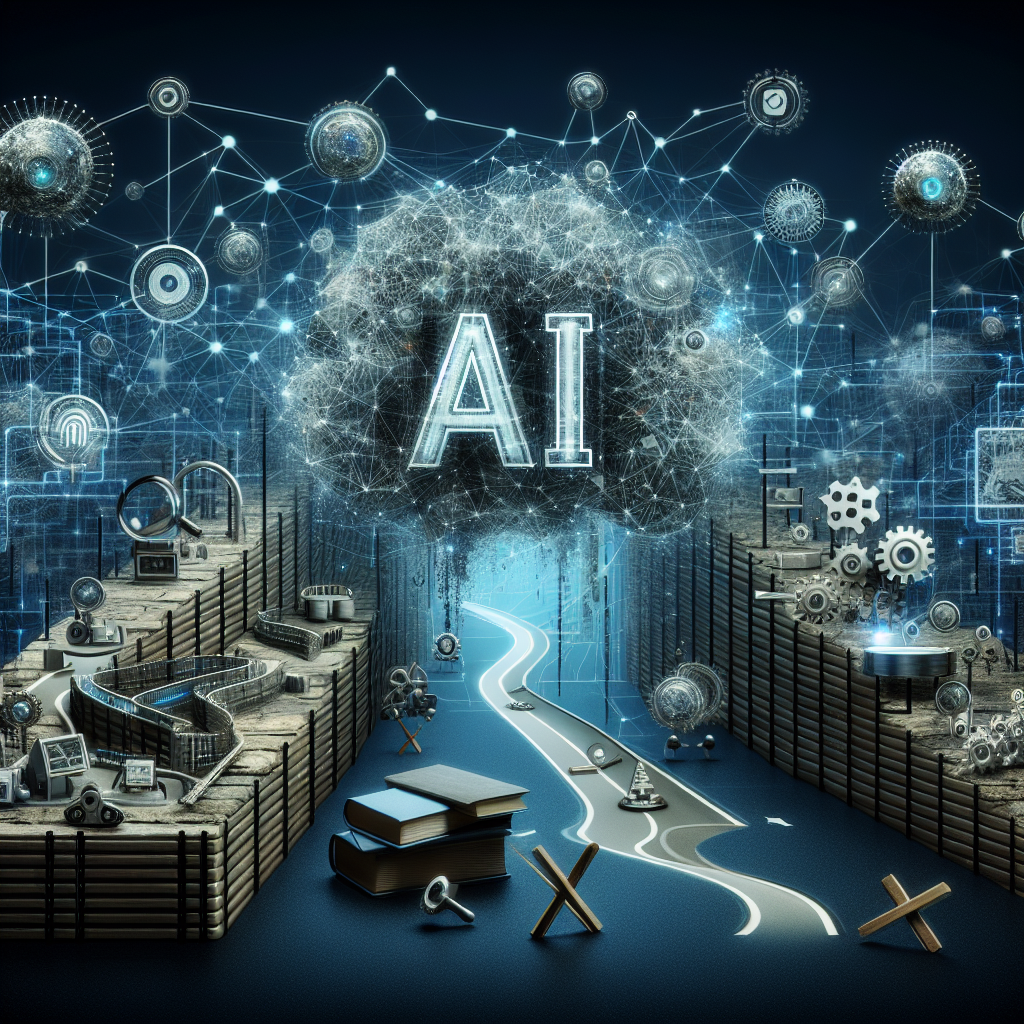Artificial Intelligence (AI) is rapidly becoming one of the most impactful technologies of the 21st century, transforming industries, enhancing human abilities, and tackling intricate challenges. As we explore the recent advancements, we’ll examine the innovations that are dismantling both technical and societal barriers, unlocking new opportunities across diverse fields.
1. Natural Language Processing (NLP)
Improved Comprehension and Generation
Recent breakthroughs in Natural Language Processing have significantly advanced AI’s capacity to understand and produce human language. Models like OpenAI’s GPT-4 and its counterparts are revolutionizing the way machines interact through language. These models can create coherent, contextually appropriate text, paving the way for applications ranging from intelligent chatbots to sophisticated writing aids.
Multilingual Functionality
Innovative strides in NLP are enabling AI to support multiple languages, allowing users worldwide to engage with technology in their native tongues. This democratization of knowledge helps close linguistic divides and promotes inclusivity.
2. Computer Vision
Instantaneous Image and Video Analysis
AI’s capability in computer vision has seen impressive progress with the emergence of sophisticated algorithms that can perform real-time image recognition and processing. Applications across various fields, including healthcare, autonomous driving, and security, depend on AI’s ability to accurately assess visual data, thereby enhancing decision-making and operational efficiency.
Ethical Concerns
Nevertheless, these advancements raise critical ethical concerns, particularly regarding surveillance and facial recognition applications. Achieving a balance between innovation and privacy rights presents a significant challenge for policymakers and technologists alike.
3. Reinforcement Learning
Enhanced Decision-Making Capabilities
Reinforcement Learning (RL) has gained prominence, especially in gaming and robotics. Through simulations, AI agents have shown the ability to learn intricate strategies by engaging with their environments, resulting in remarkable achievements like outmaneuvering human champions in games such as Go and Dota 2.
Practical Applications
Apart from gaming, RL is finding utility in various domains, from optimizing supply chain logistics to enhancing resource management in smart cities, indicating its potential to effectively address real-world challenges.
4. AI in Healthcare
Tailored Medicine
The integration of AI in healthcare is dismantling barriers in patient care and treatment. Advanced algorithms evaluate genetic data to enable personalized medicine, resulting in customized treatment plans that improve outcomes and minimize side effects.
Predictive Analytics
AI’s capacity to forecast disease outbreaks and patient outcomes through data analysis is bolstering proactive healthcare initiatives. This capability is essential for public health management and enhancing our understanding of diseases.
5. Ethical AI and Responsible Development
Tackling Bias and Ensuring Fairness
As AI becomes more widespread, the discourse around ethical AI practices has intensified. Initiatives aimed at identifying and reducing bias in algorithms have gained traction, ensuring that AI serves all communities fairly. Companies and researchers are increasingly focusing on fairness and transparency in AI development.
Regulatory Guidelines
Governments and organizations are considering regulatory frameworks to oversee AI applications, balancing innovation with accountability. This proactive stance is vital in building trust and promoting responsible AI development.
6. Future Outlook
Collaborative Intelligence
The future of AI is promising, characterized by the rise of collaborative intelligence, where AI enhances human capabilities instead of replacing them. This synergy has the potential to boost creativity, productivity, and problem-solving across various sectors.
Ongoing Learning
The notion of continuous learning is gaining traction, allowing AI systems to adapt and evolve with new data. This flexibility is essential for remaining relevant in constantly changing environments, ensuring that AI solutions continue to be effective and beneficial.
Conclusion
The latest innovations in artificial intelligence symbolize more than mere technological advancements; they represent a significant shift in societal capabilities and opportunities. As AI continues to break down barriers, prioritizing ethical considerations, inclusivity, and collaborative methods will be crucial for unlocking its full potential. The AI revolution is not solely about machines learning; it’s about humanity learning to coexist with technology to forge a brighter, more equitable future.

